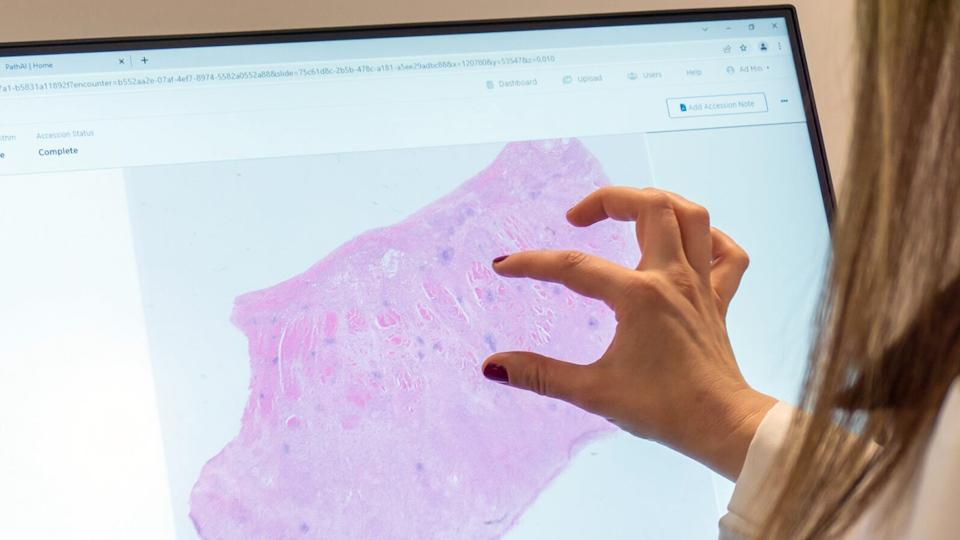Roche, PathAI team up on AI companion diagnostics

Roche has turned to artificial intelligence specialist PathAI to accelerate development of digital pathology technologies that can be used to match patients with drug treatments and support new drug development.
The alliance is with Roche Tissue Diagnostics (RTD), a unit of the Swiss pharma group that is concerned with the development of tissue-based tools to improve the diagnosis of cancer and grew out of Roche’s acquisition of Ventan Medical Systems in 2008.
RTD has been working with PathAI since 2021, when they joined forces to develop an embedded image analysis workflow for pathologists by combining PathAI’s image analysis algorithms into Roche’s Navify digital pathology platform.
Under the expanded agreement, the two companies will extend their work to include the development of validated biomarkers which can be used in companion diagnostics – tests used to help match a patient to a specific drug or therapy – and that can be integrated into pathology laboratories.
AI may help handle some of the limitations of current companion diagnostic assays based on genetic or tissue-based biomarkers, for example, such as the high level of variations between tumours even of the same type. It has been thought for some time that a new generation of companion diagnostics is on the way that will combine tumour morphology and molecular attributes.
RTD will work exclusively with PathAI as the sole third-party algorithm development company for AI-powered companion diagnostics, but retains the ability to continue to develop its own algorithms for this purpose, according to Roche. The co-developed assays will be commercialised through the Navify platform.
PathAI, meanwhile, can continue to develop algorithms independently for use outside of the companion diagnostic area, and said in a separate statement that the alliance will work on an integrated companion diagnostic assay, plus an algorithm development process, “to provide biopharma sponsors a seamless solution for AI-enabled companion diagnostics.”
A survey commissioned by digital pathology company Proscia and published last year found that over 70% of major pharma companies and contract research organisations (CROs) have adopted digital pathology to advance drug R&D and accelerate the introduction of new therapeutics, and 82% of them are applying AI in this way.
“As the market leader in companion diagnostics, we strive to continuously bring new innovations in personalised healthcare,” said Jill German, head of RTD.
“This collaboration with PathAI will allow us to accelerate our ability to meet the demand from biopharma companies looking to develop AI-enabled companion diagnostics and provide them with a powerful end-to-end solution in the pursuit of precision therapeutics,” she added.













